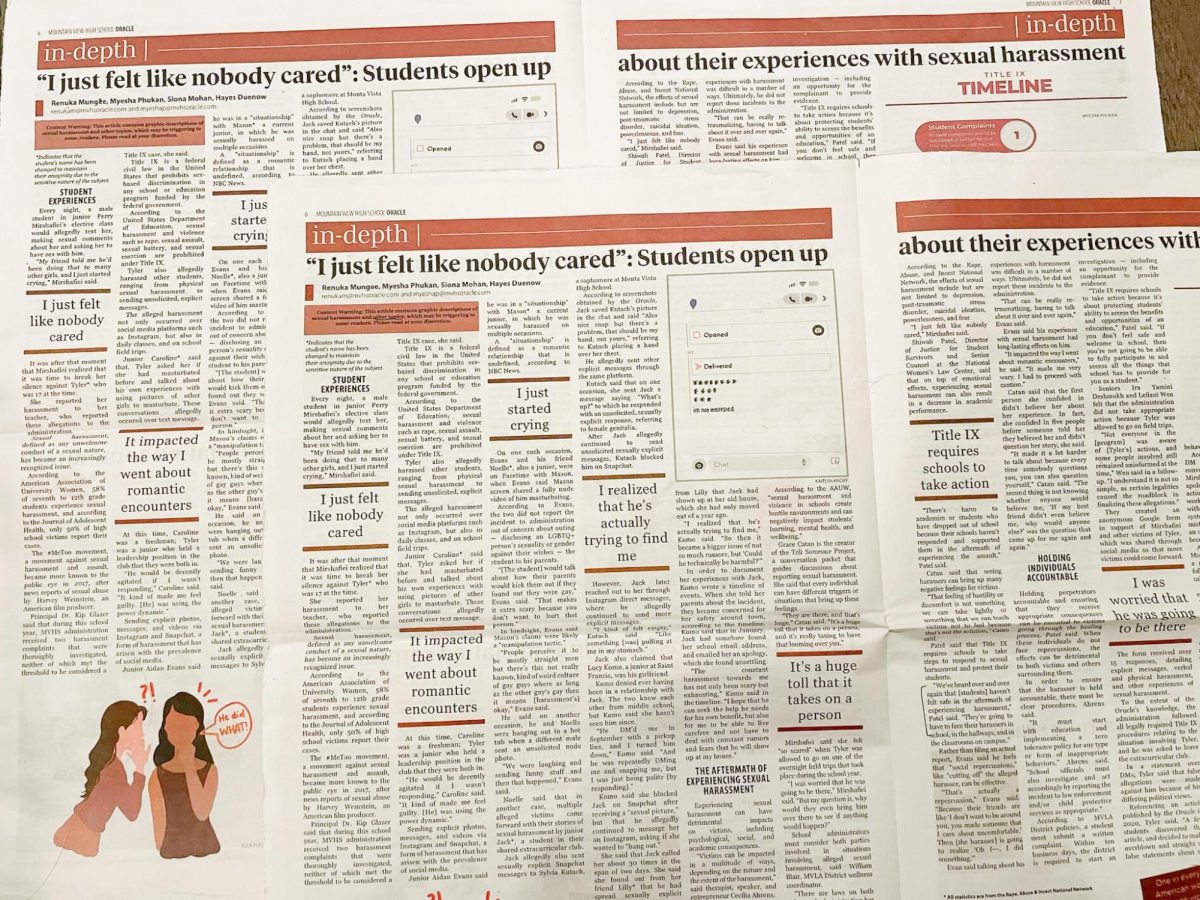
Biology teacher Lora Lerner has been teaching the general course (which includes sexual education) for 13 years at MVHS. She noticed how the changes in the law moved toward a more progressive stance.
“What was required before was basic reproductive knowledge along with a few special cases,” Lerner said. “One was teaching about HIV, and the other had to do with teaching students that if they did have a baby and didn’t want to keep it, they could give it to a public institution and they would take it and take care of it.”
Sophomore Mritthika Harish took Lerner’s class for Biology and participated fully in the sexual education section. She thinks that the changes are a positive and welcome effect to the campus, especially in terms of relationships.
“I think it’s good,” Harish said. “We all should know what diseases we can get from sexual intercourse. It’s good that they made it mandatory so that people can know all the pros and cons of having sex.”
Before the legislative changes, two general but unofficial types of sexual education were taught. One was known as abstinence-only, where topics such as safe sex were minimized in favor of explaining the merits of celibacy. Another type was known as comprehensive, where the full range of topics were all taught in detail. The new law is a movement towards the more comprehensive side of education, by adding HIV prevention, body image and sexual orientation into the course. However, parents do still have the option to remove their children from the course.
“Is freshman year the right age [for sex ed]? I think every year is the right age,” Lerner said. “There’s different things you can do at different times. The advantage of younger is that I think you can catch people before they’re in some of these [troublesome] situations so that they can make better decisions. The disadvantage is sometimes when the kids are younger it’s harder to relate to because they haven’t quite gotten there yet.”
Freshman Apoorv Pachori, who prefers to go by the name Poofy, is currently taking Lerner’s class. He greatly approves of the changes that are taking place in the sexual education curriculum. One of the factors he appreciates is a widening perspective on subjects like transgenderism and differing sexual orientations. He thinks that this new law will change MVHS’s attitude for the better.
“I think it’s beginning to change, but it’s still kind of prejudiced,” Pachori said. “A lot of my friends use insults like ‘that’s so gay’, so it’s still kind of harmful, but it’s changing, and the change will definitely make them more confident.”





















